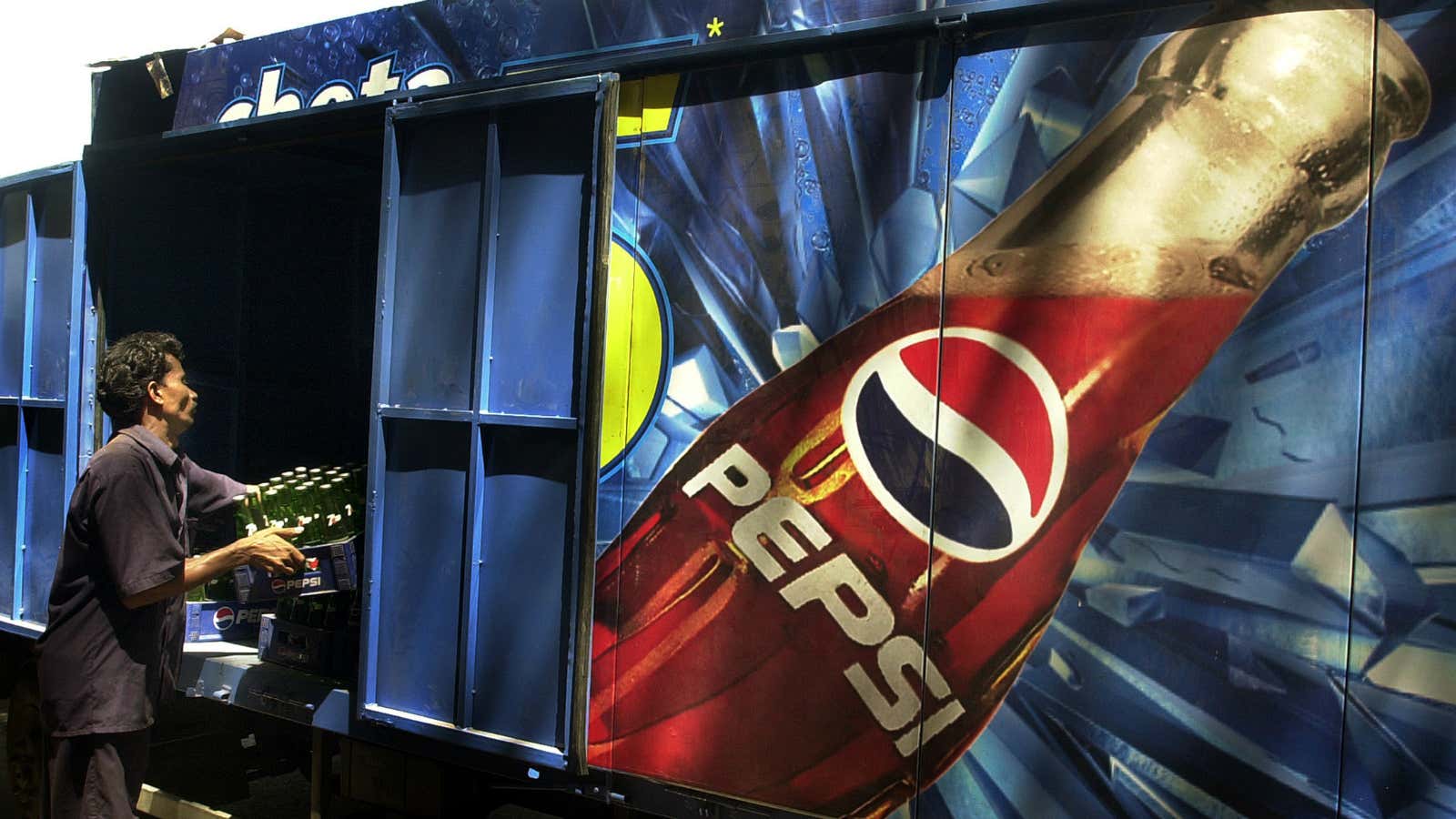Pepsi has fired the first shot in what could be a new cola war—albeit of the low-cal sort—in India. And at the heart of this contest is stevia, a plant extract-based sweetener, which significantly cuts down a drink’s calorie count.
PepsiCo India, the global food and beverage giant’s local arm, is test-marketing a low-calorie version of its lemon-flavoured beverage 7Up in Gujarat, the Economic Times reported on Aug. 25. If successful, India could become the first market in the world to get a stevia-based 7Up with 30% less sugar. In all, it would cut down the calorie count of a 100ml 7UP serving from 47 kilocalories to about 33 kilocalories.
With consumers ditching sugar-laden sodas for more healthy beverages, amid growing concerns over obesity and diabetes, the world’s biggest beverage makers, including Pepsi and arch rival Coca-Cola, are seriously competing for a piece of the low-calorie drinks market. For the last two years, the Indian government, too, has been asking them to go easy on the sugar. In India, so far, the market for such drinks has been small, but Pepsi is betting that it won’t stay that way for long.
Stevia, what?
Grown in parts of Latin America, stevia is a herbal extract derived from a green, leafy plant called stevia rebaudiana. Some of the plant’s active compounds are known to be 200-300 times as sweet as sugar. Although stevia has been used as a natural sweetener in the US for over a decade, it was only in 2008 that the US Food and Drug Administration (FDA) approved the use of Rebaudioside A (Reb-A), an active compound found in the plant, as an additive.
Since then, stevia has become a popular substitute for artificial sweeteners such as aspartame and sucralose, whose reported side-effects vary from weight gain to cancer. In 2014, both Coke and Pepsi launched stevia-based colas, Coke Life and Pepsi True, respectively, in the US.
In 2012, Coca-Cola and American multinational Cargill sought approval from the Food Safety and Standards Authority of India (FSSAI), a regulatory body to use stevia as an additive. Last year, FSSAI approved its use, giving companies more room to grow their low-calorie portfolio. Pepsi, though, is the first off the mark.
Selling health in India
At Rs100-crore, India’s market for low-calorie drinks is still a fraction of the Rs25,000-crore fizzy drinks category.
“Demand for low-calorie carbonates remained limited to a small niche of health-conscious consumers who primarily belong to the upper-middle income segment,” research agency Euromonitor said in a May 2016 report.
Nonetheless, Euromonitor expects that with “lifestyle diseases and conditions such as hypertension and diabetes experiencing an exponential rise in the country, an increasing number of Indians are opting for healthier options.”
That’s precisely the market that Pepsi seems to want to tap in India, in line with its global plan to reduce the dependence on sodas and focus on a more health-based portfolio.
“This is our first and very important move forward in making our existing core range healthier,” Vipul Prakash, vice-president, beverages, PepsiCo India, told the Economic Times.
But there’s some risk involved in replacing sugar because Indians are very picky about taste. Pepsi’s version of a no-sugar, zero-calorie drink, Max, launched in 2010, fizzled out within a year because consumers rejected the taste.
Maybe stevia’s sweet success can wash off that bitter taste?
